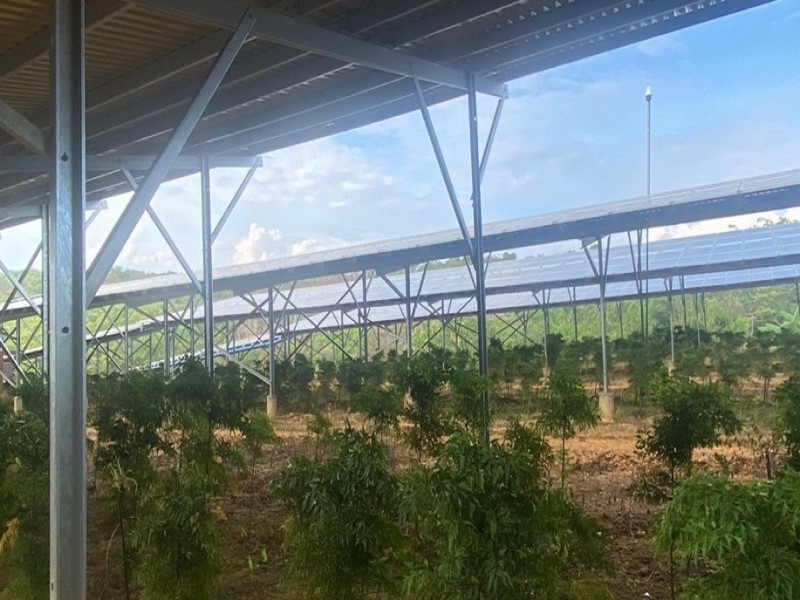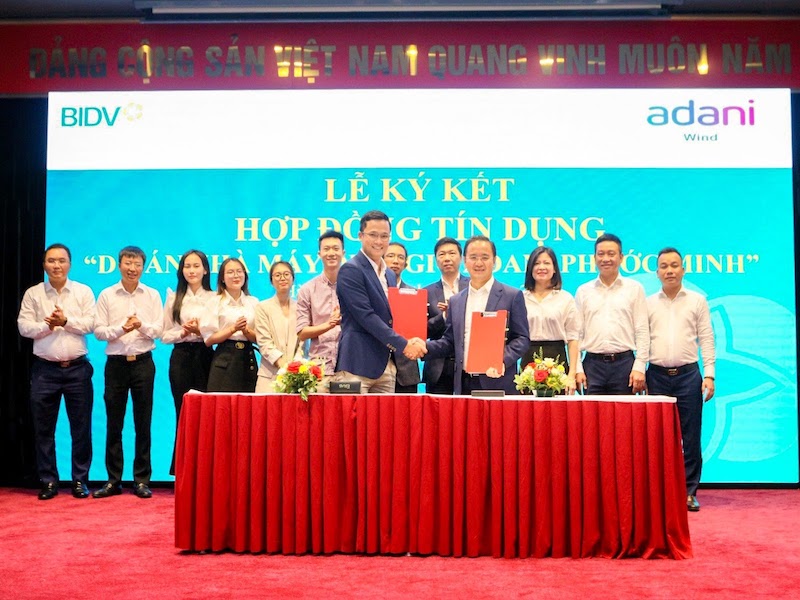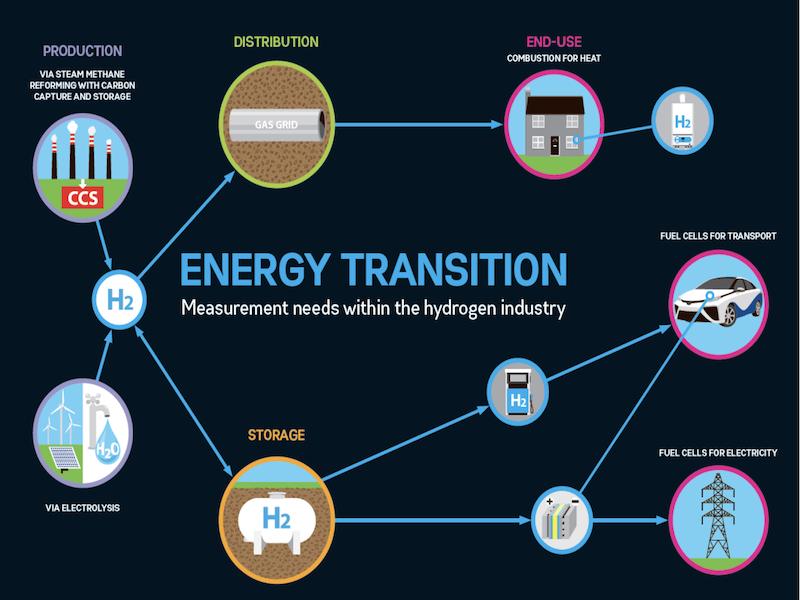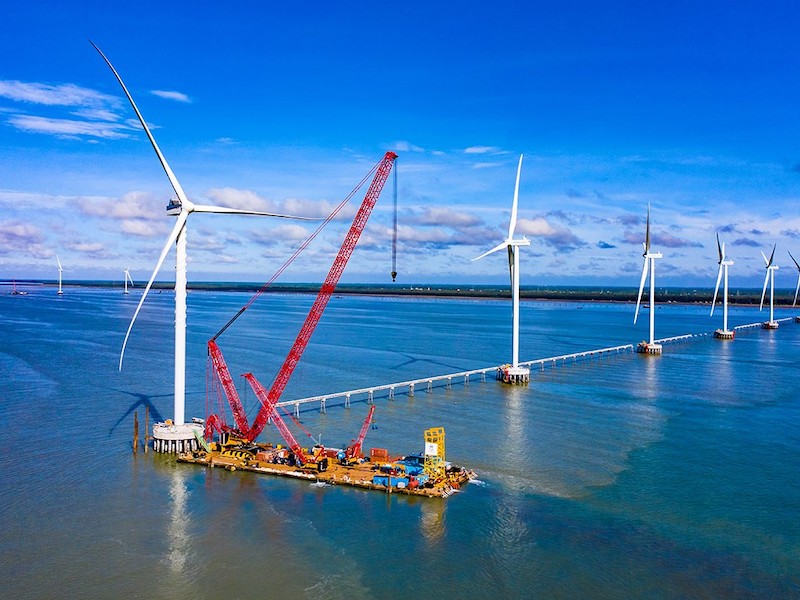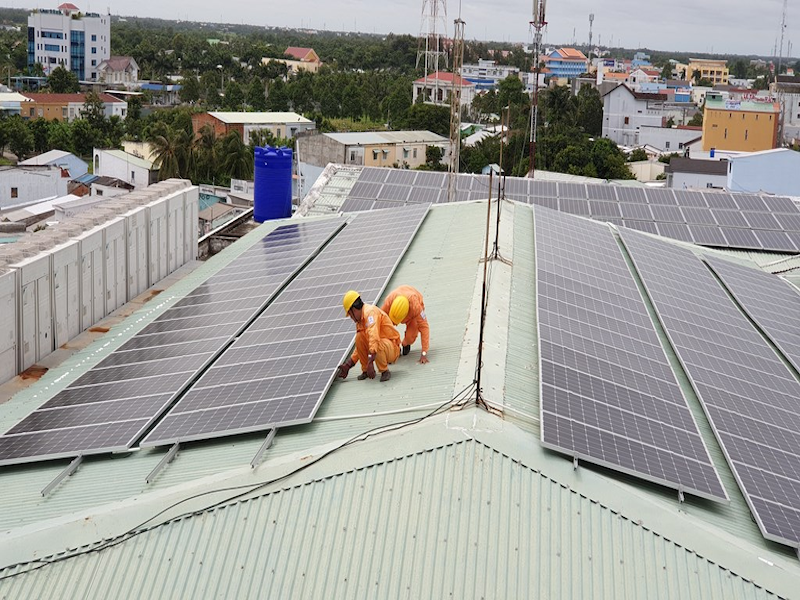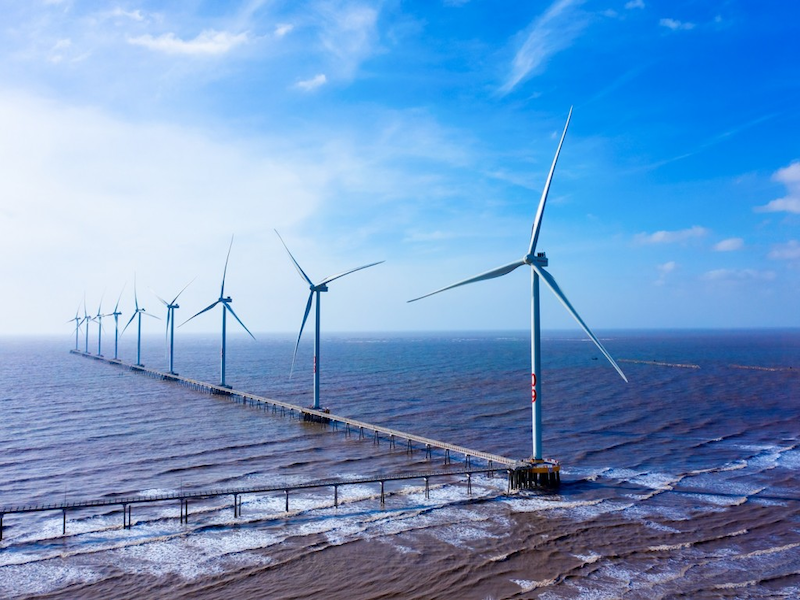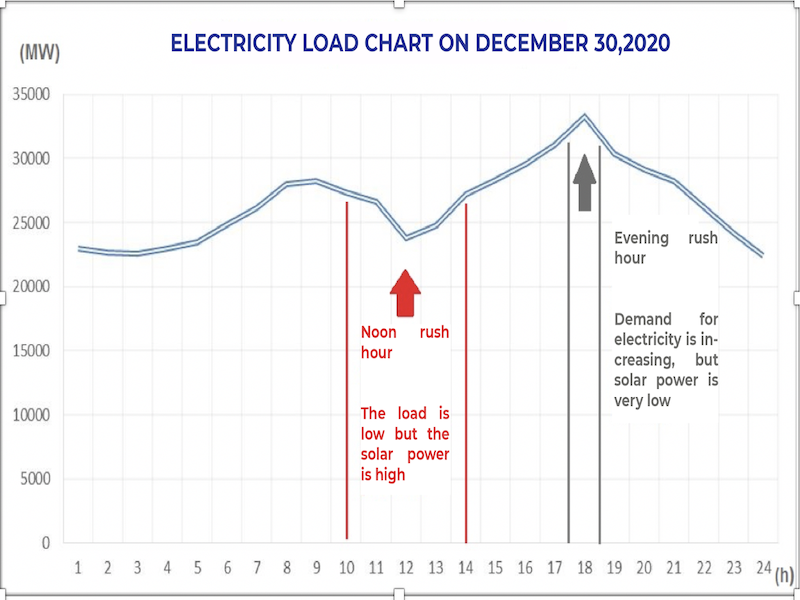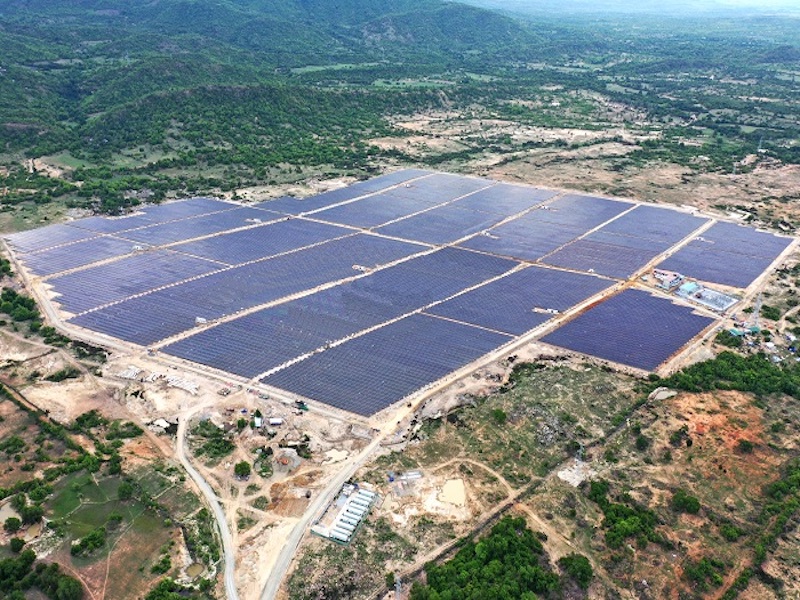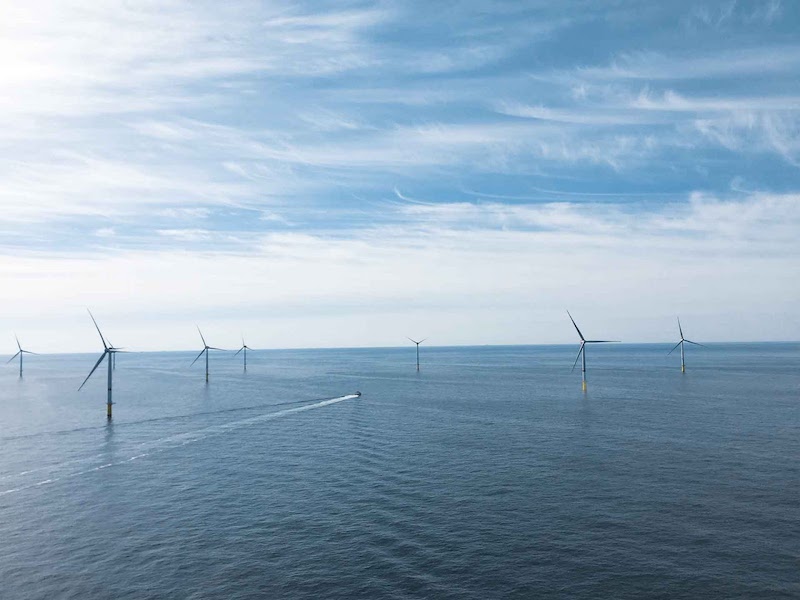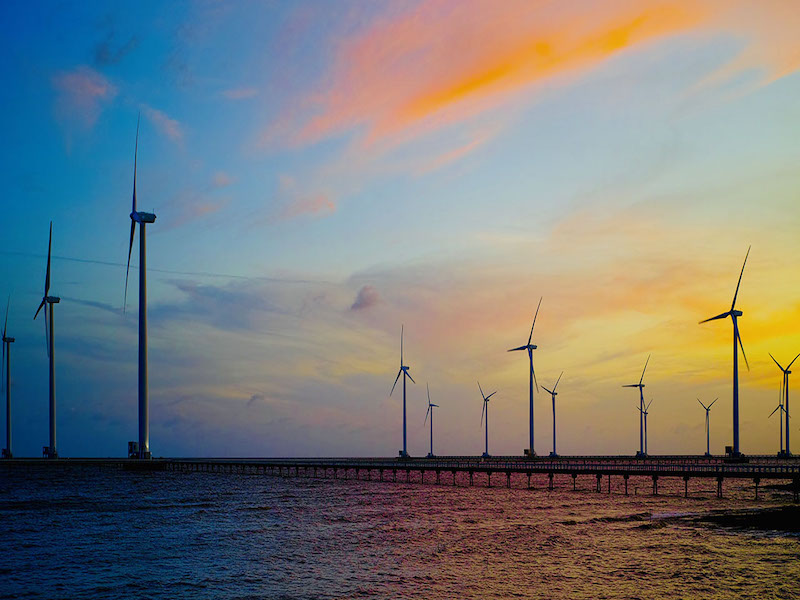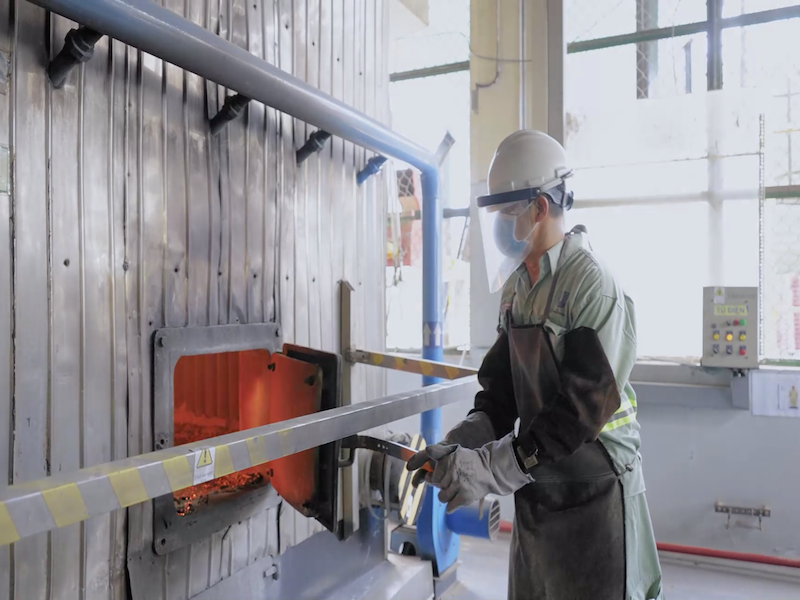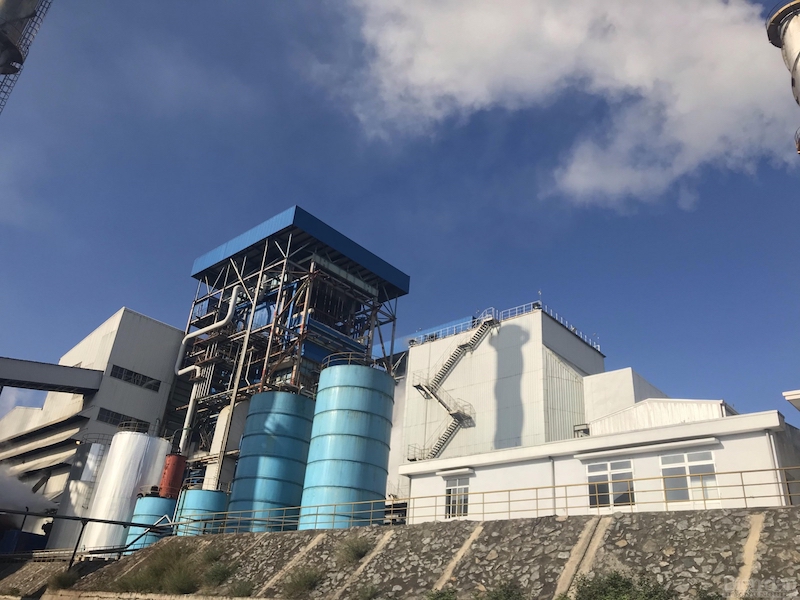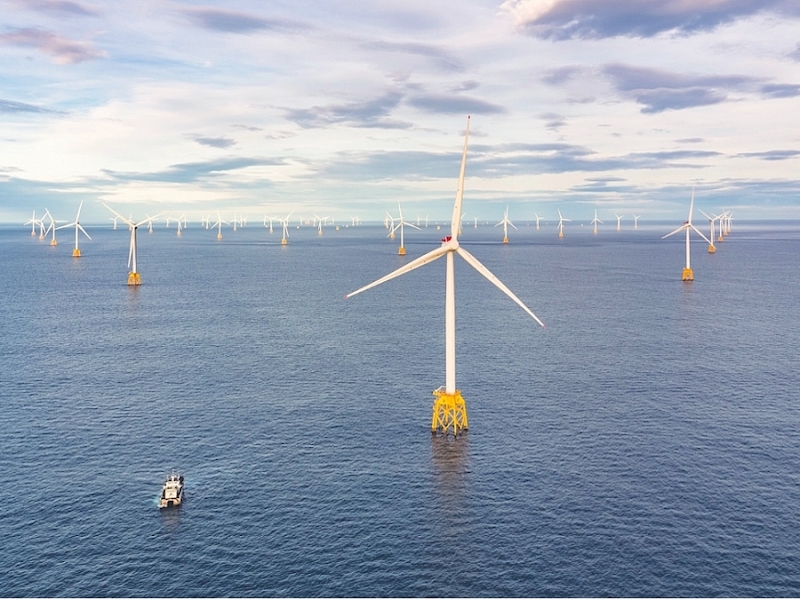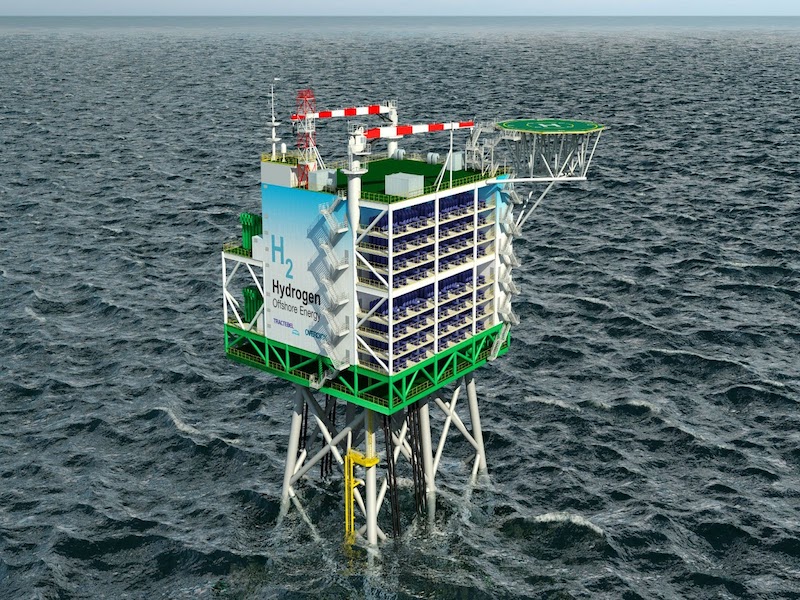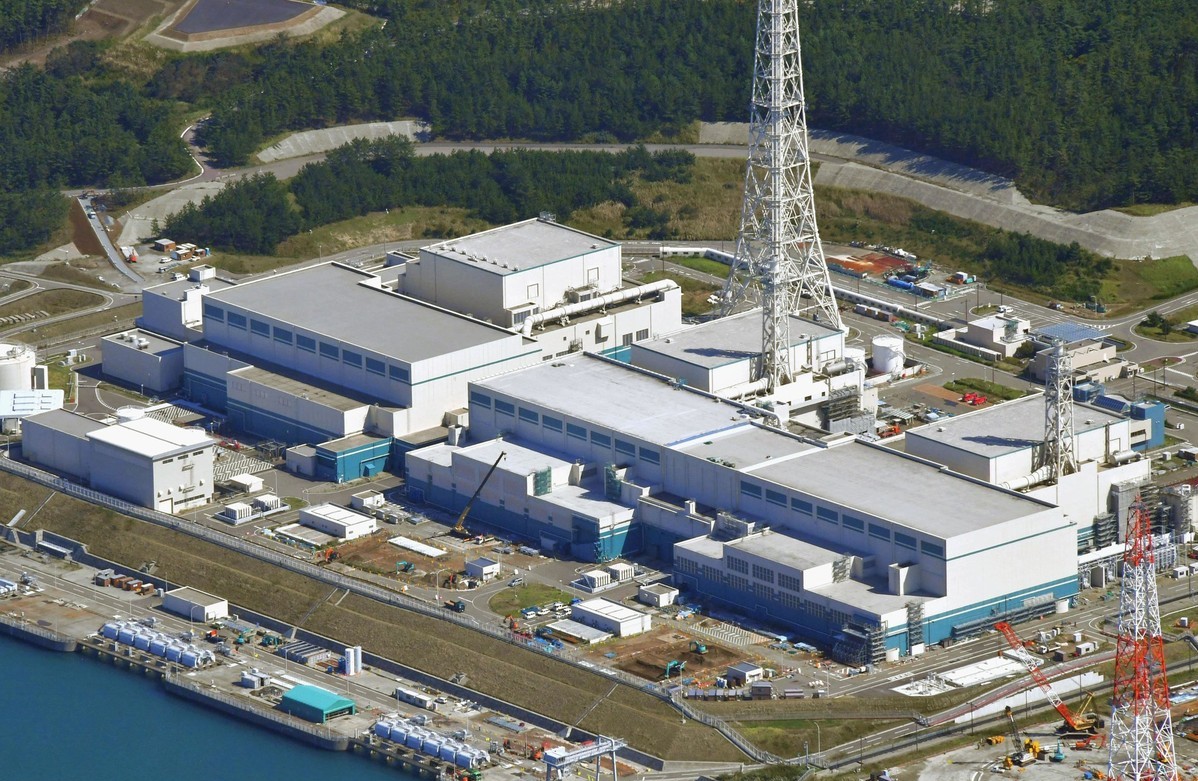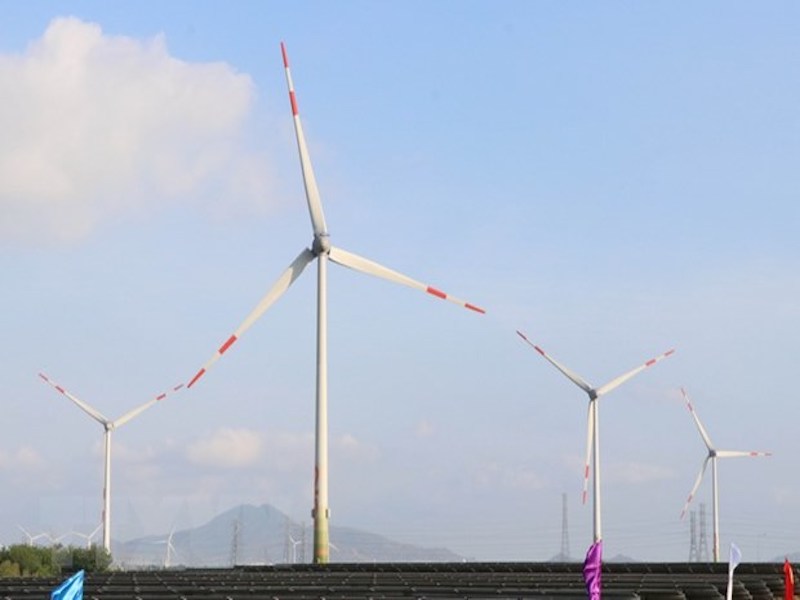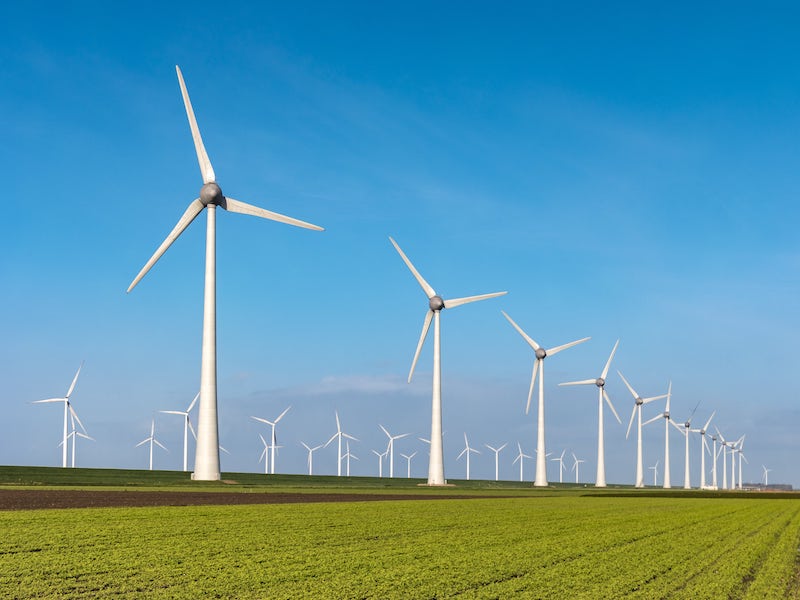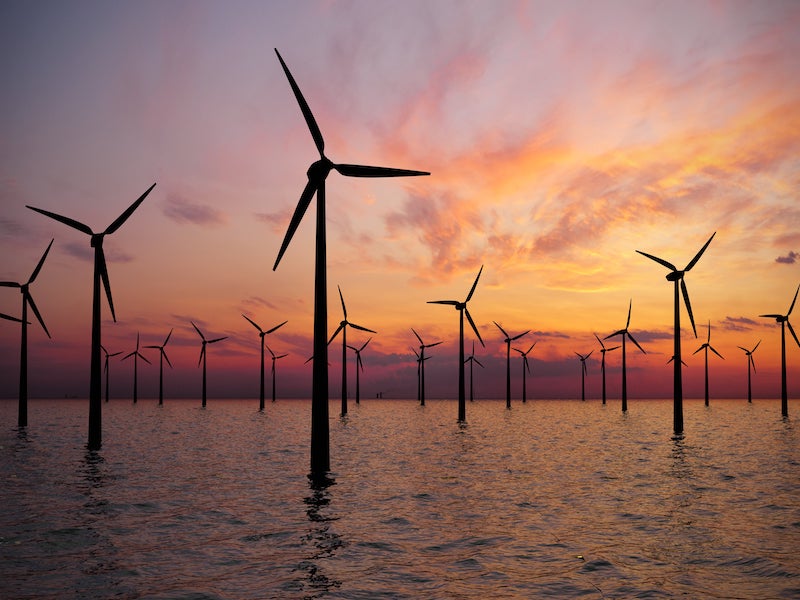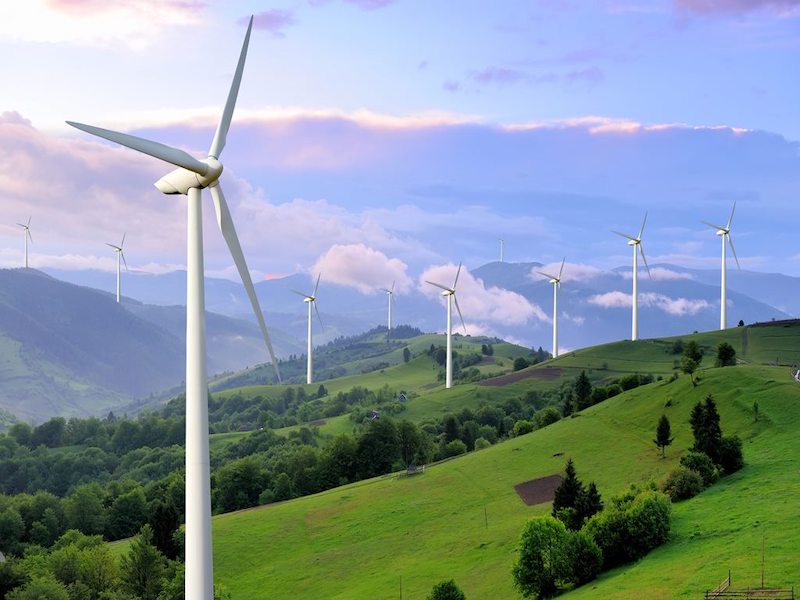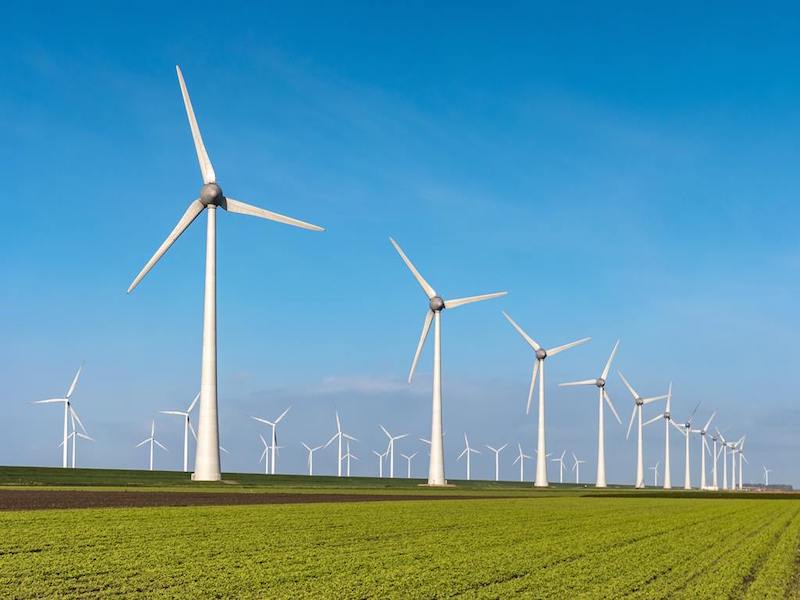The second Vietnam Clean Energy Forum took place in Hanoi on April 7, offering a venue for managers, scientists and businesses to exchange views on mechanisms, policies, technology and financing for wind, solar and gas power projects towards carbon neutrality.
In his opening remarks, deputy head of the Climate Change Department under the Ministry of Natural Resource and Environment Pham Van Tan said that to realise its commitments of bringing net emissions to zero by 2050, and reducing 30 percent of methane emissions by 2030 compared to 2020 announced at the 26th United Nations Climate Change Conference of the Parties (COP26) last year, Vietnam should shift to use renewable energies such as wind, solar and gas power, and other low-carbon sources.
A wind and solar power project in Ninh Thuan of RT Energy - a leading enterprise in renewable energy in Vietnam.
Therefore, the forum was a good chance for participants to discuss shortcomings, challenges and also opportunities for the development of clean energy in Vietnam.
Hoang Trong Hieu, Deputy Chief of Office of the National Steering Committee for Electricity Development, stated that policies encouraging renewable energy development have paid off. Vietnam’s renewable energy sources have reached about 20.7 GW, accounting for more than 27 percent of its total power capacity.
However, the strong development of wind and solar power projects has led to an imbalance of transmission sources by region because these projects are mainly developed in the central and southern regions. In addition, the implementation of clean energy projects currently is facing many difficulties related to planning, construction investment, site clearance, and financial mechanisms.
The "bottlenecks" that need to be removed for the development of renewable energy in Vietnam today are developing investment strategies, mobilizing large capital sources, planning land funds, etc.
Pham Thi Thanh Tung, Deputy Director of Credit for Economic Sectors Department under the State Bank of Vietnam, said that by the end of 2021, credit balance for green projects topped 441 trillion VND (19.3 billion USD), accounting for 4.2 percent of the total outstanding loans of the economy, up 32.5 percent compared to 2020. In particular, credit balance for renewable energy projects surpassed 212 trillion VND, or 47 percent of that of green projects. Credit institutions face many difficulties in handling dossiers related to renewable energy projects because they must take into account the project's efficiency. To solve the problem, Vietnam needs a breakthrough policy such as the formation of a renewable energy fund to create favourable conditions for investors.
VNA



